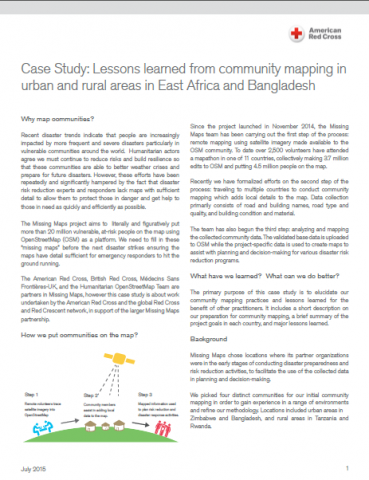Case Study: Lessons learned from community mapping in urban and rural areas in East Africa and Bangladesh
The Missing Maps project aims to literally and figuratively put more than 20 million vulnerable, at-risk people on the map using OpenStreetMap (OSM) as a platform. We need to fill in these “missing maps” before the next disaster strikes ensuring the maps have detail sufficient for emergency responders to hit the ground running. The American […]








